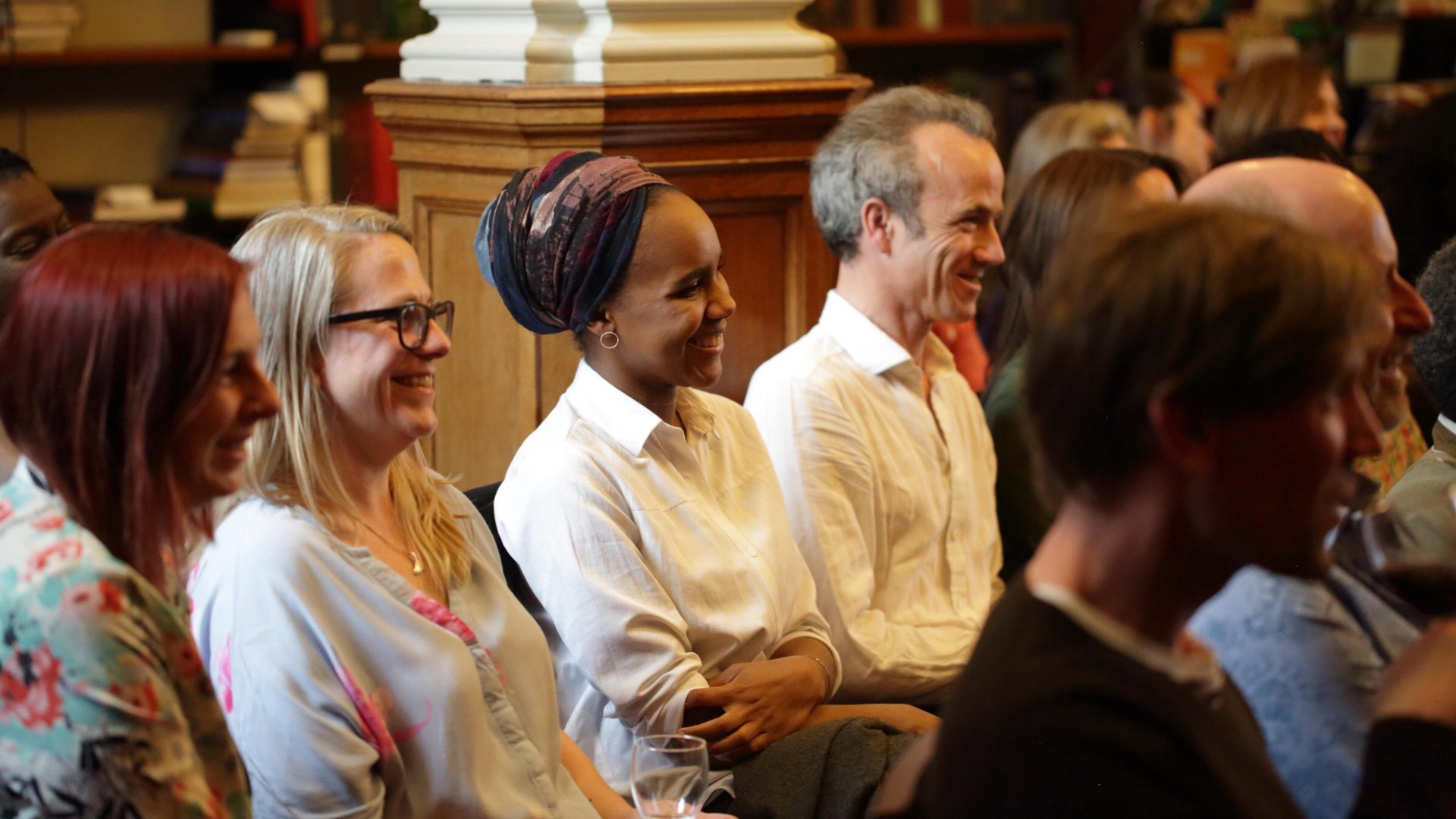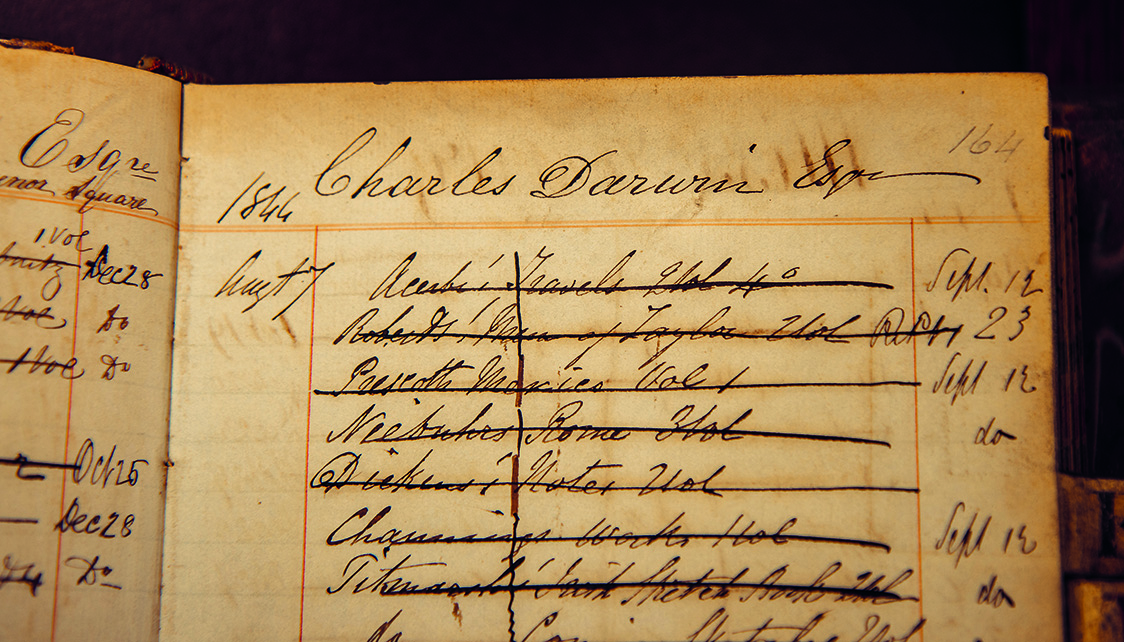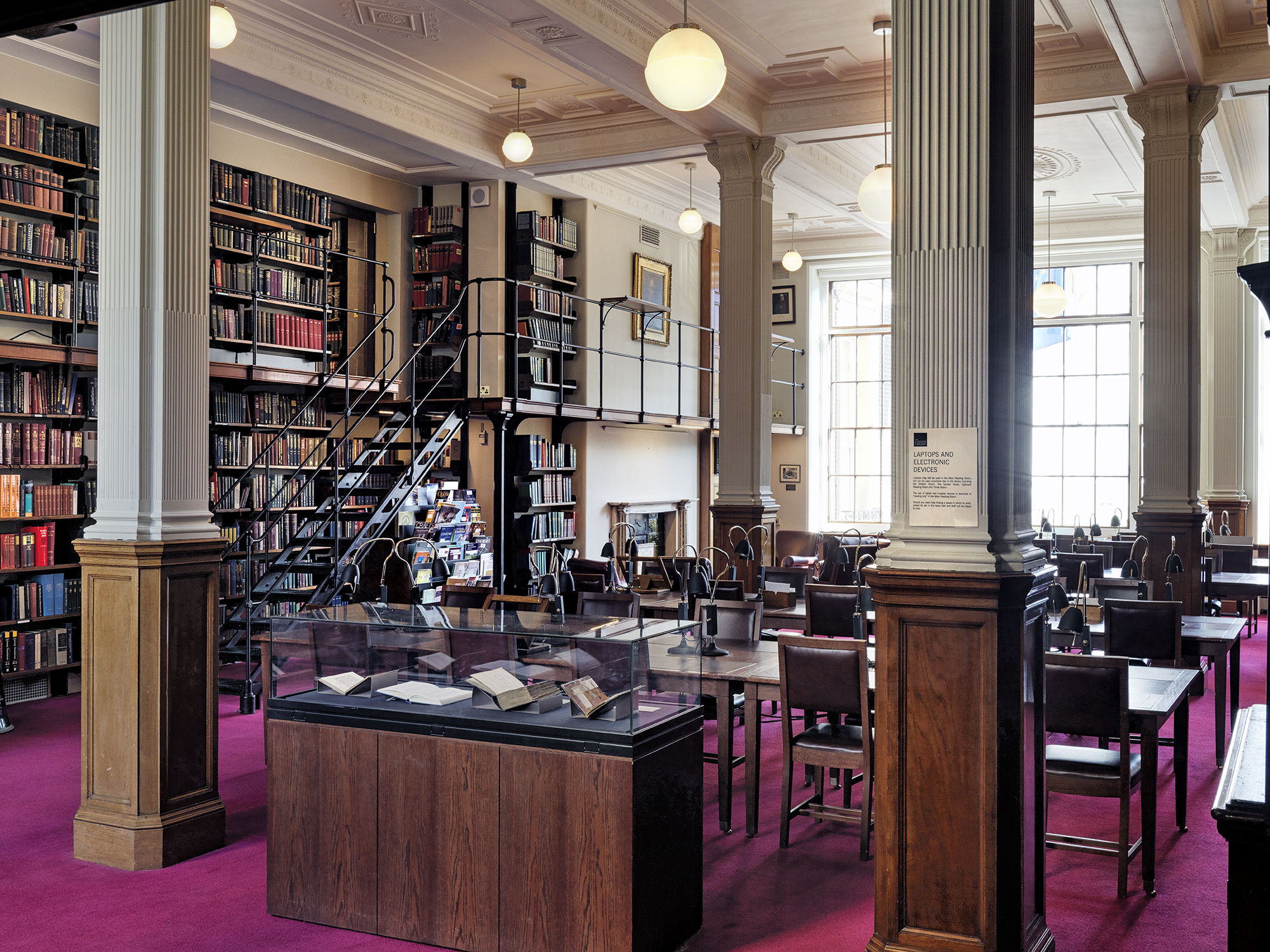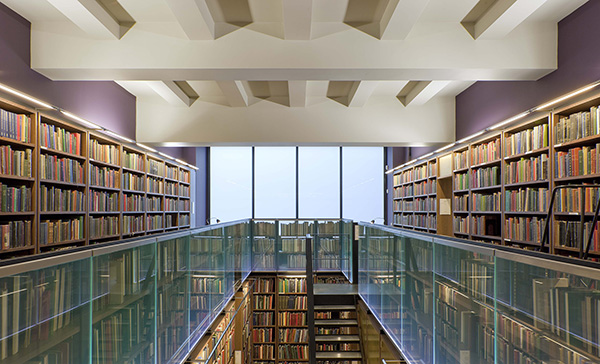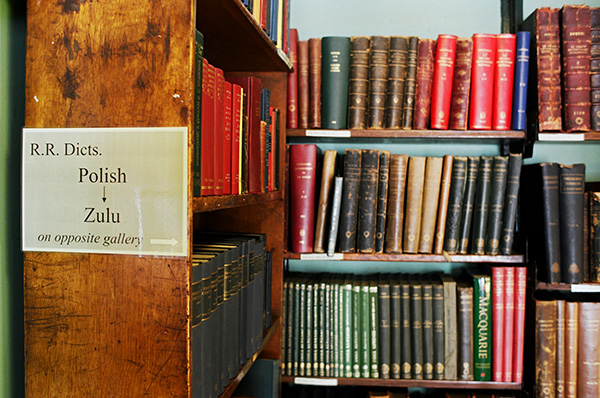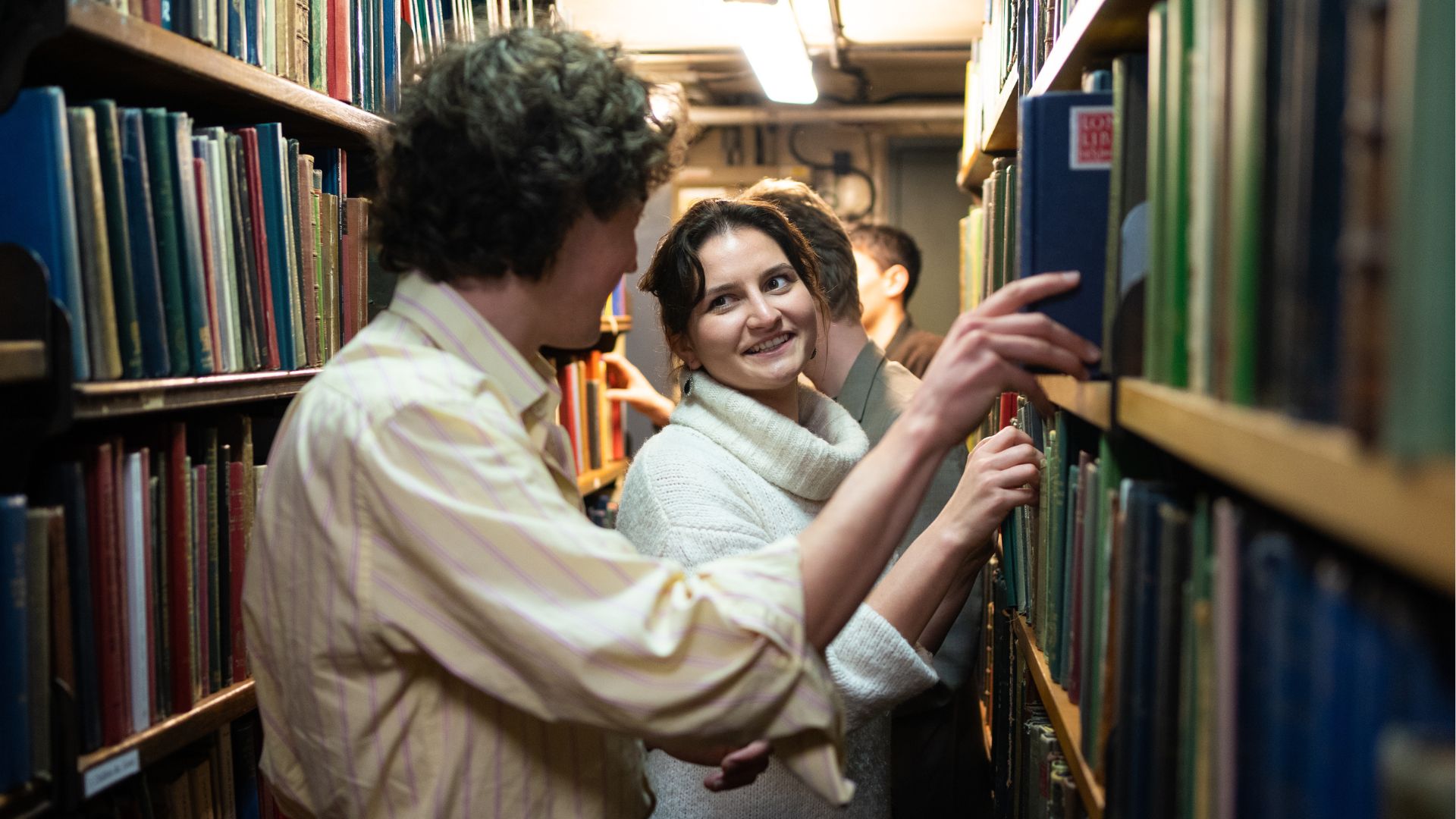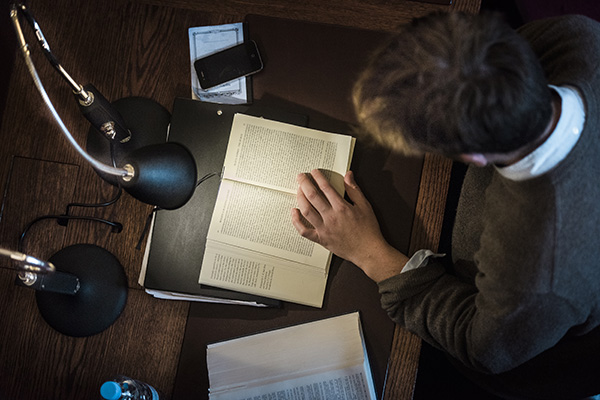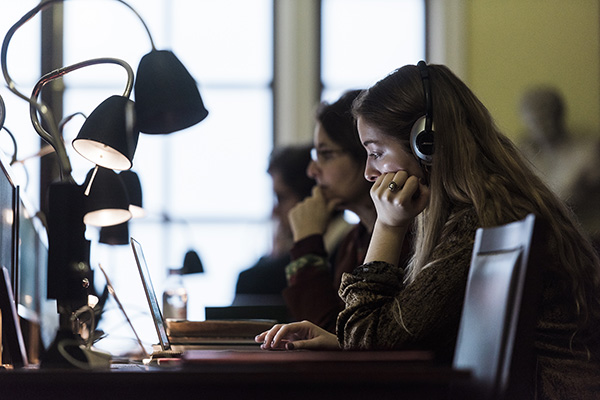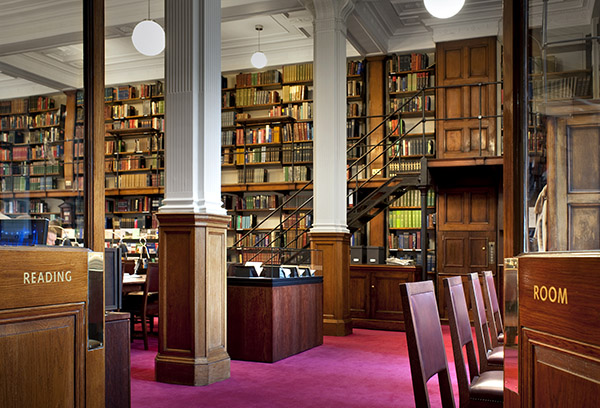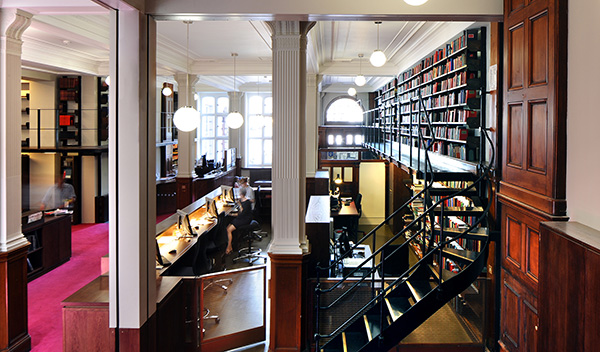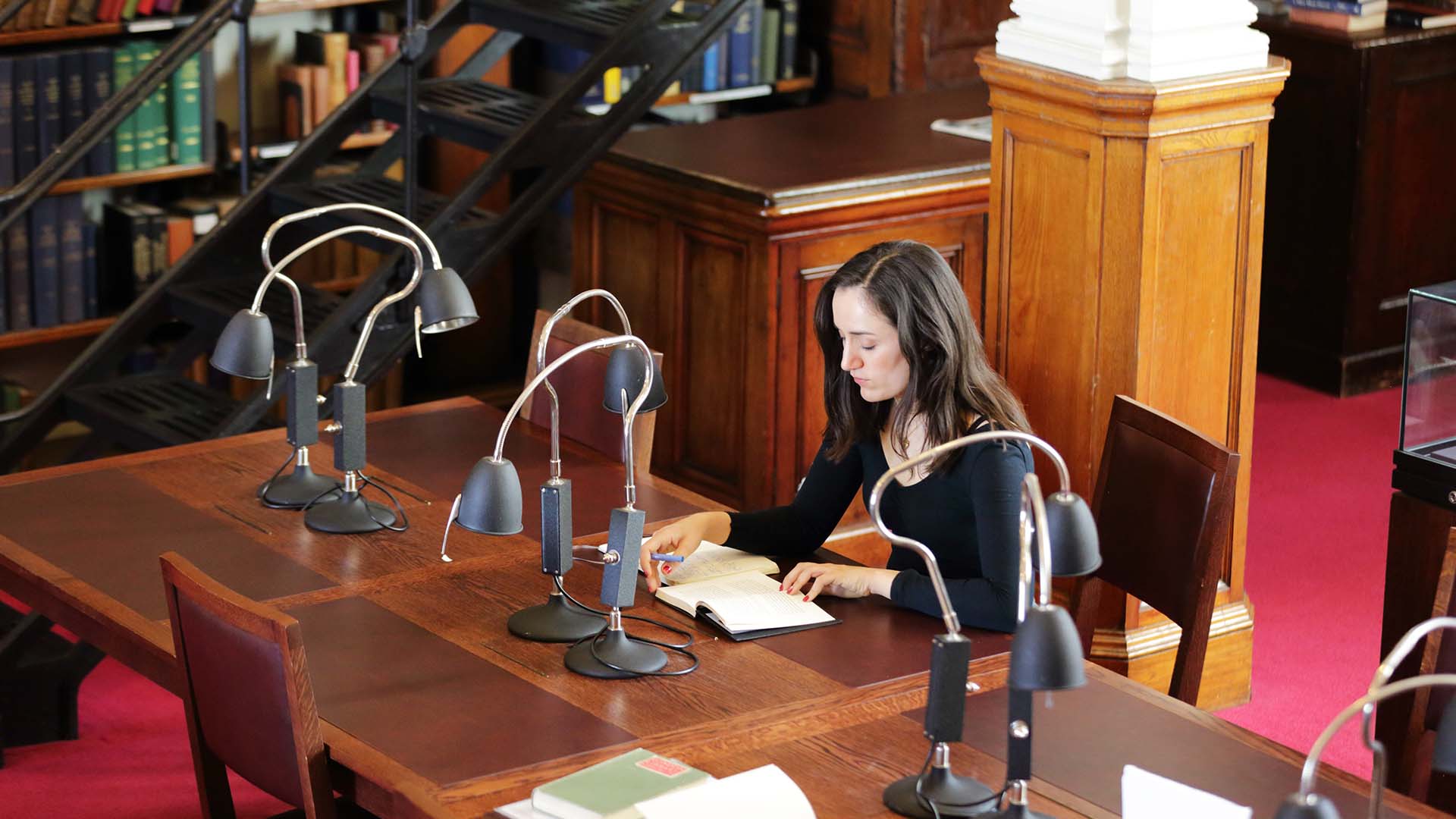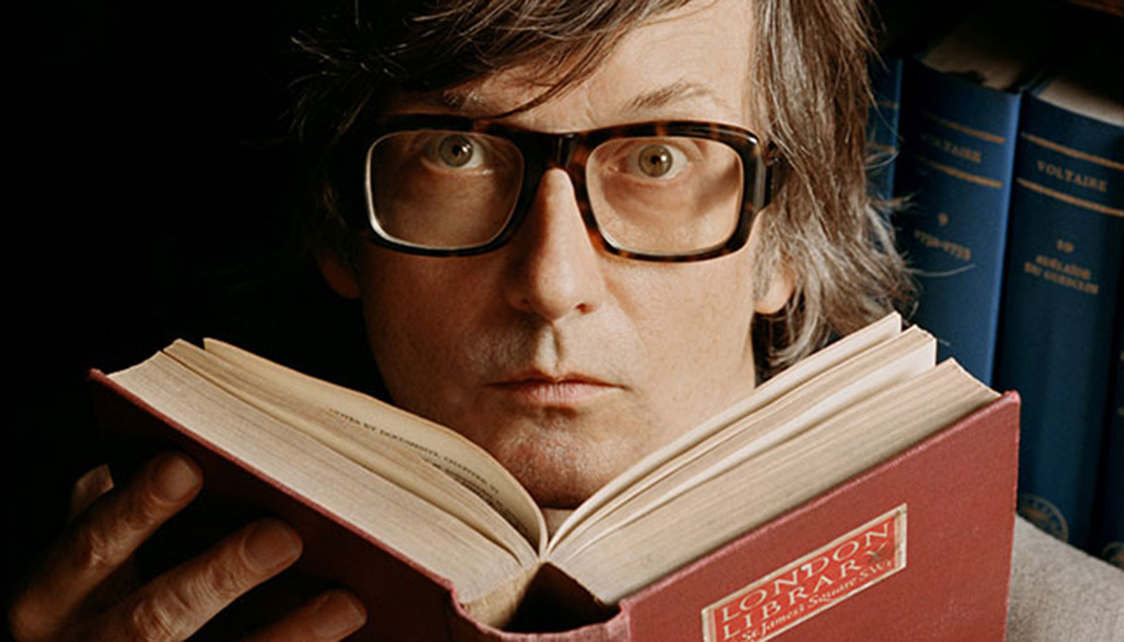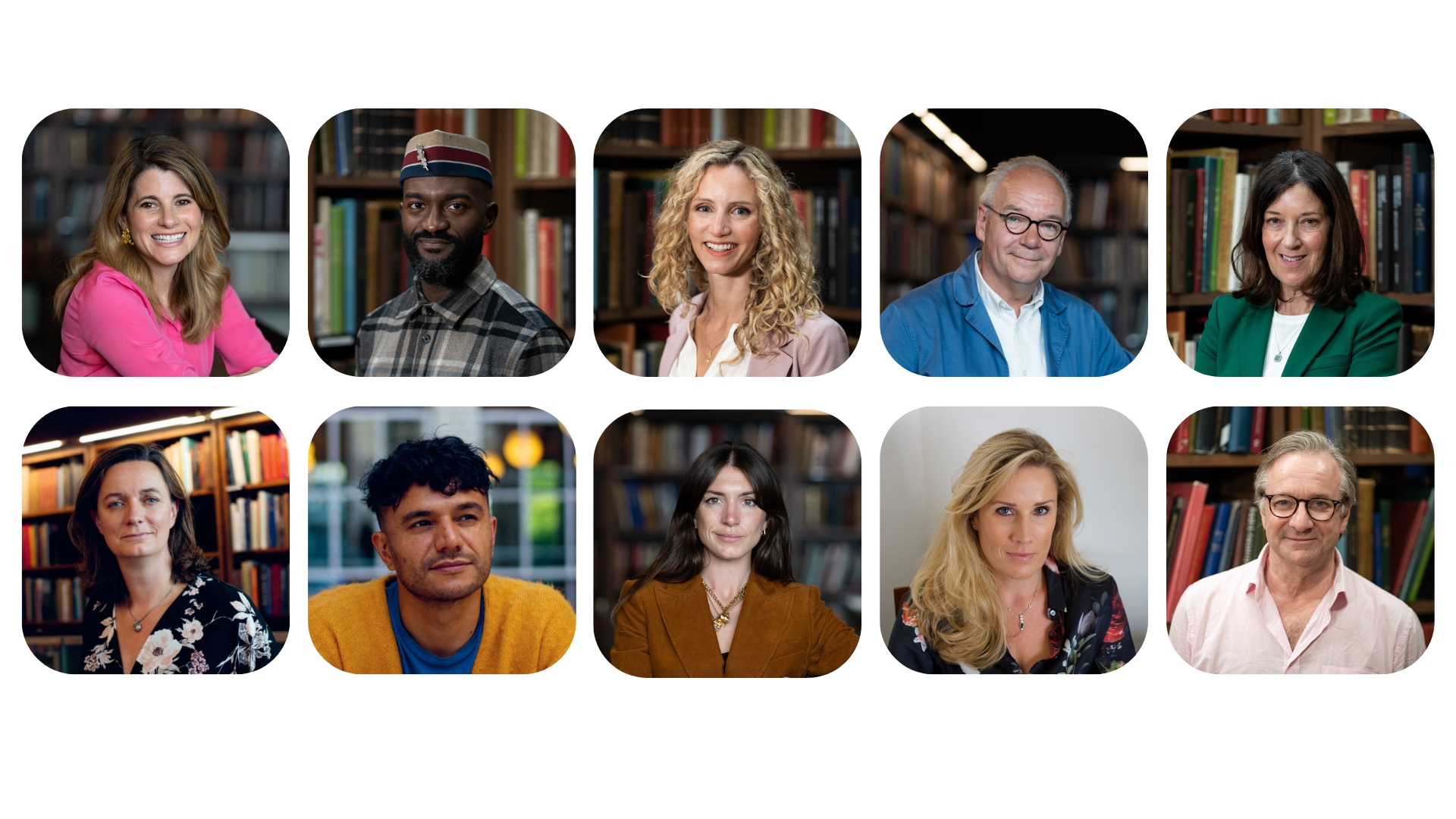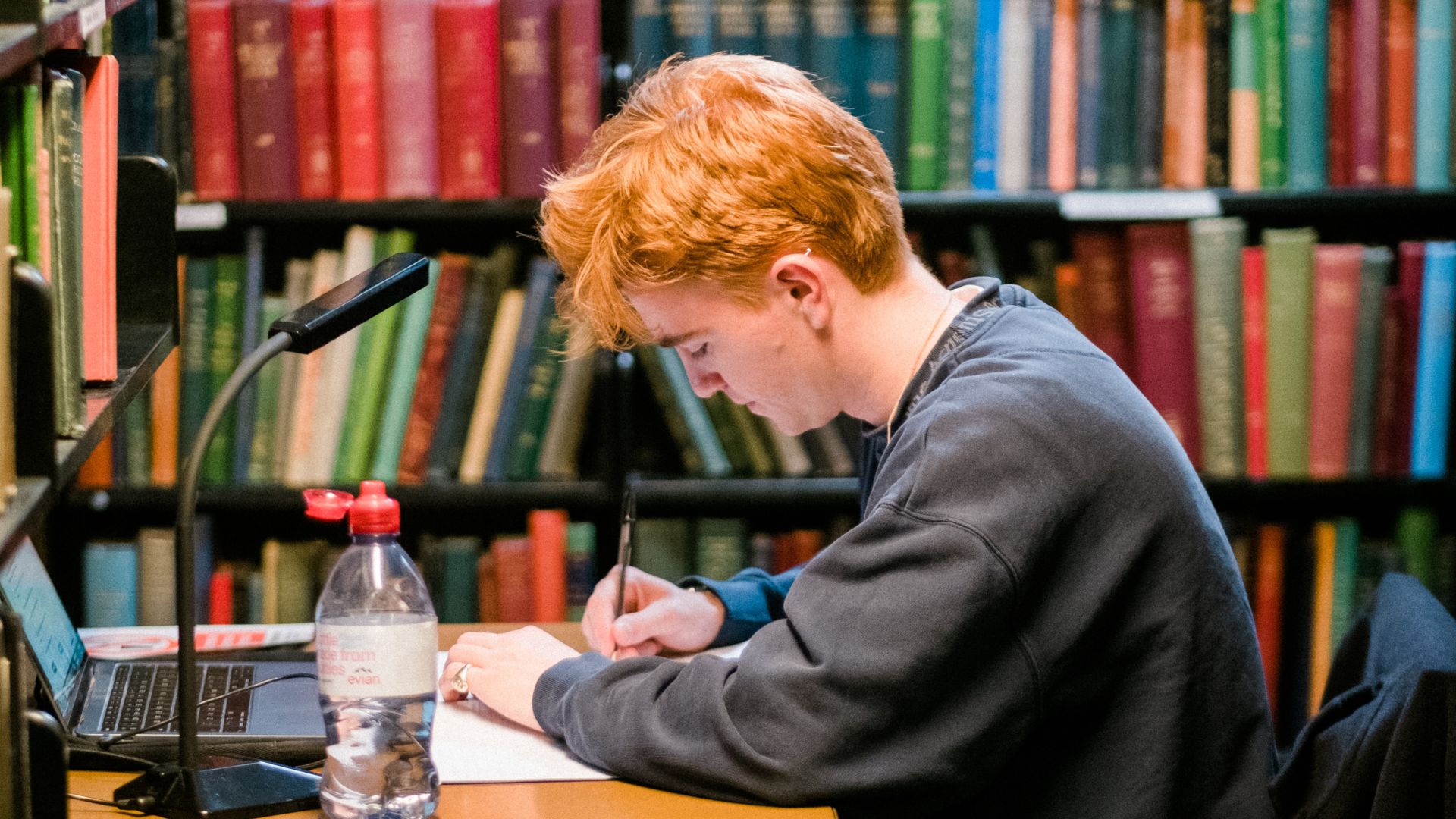Events at The London Library are back! And we can’t wait to fill the Reading Room again with discussion, music, poetry and chat.
We’ll be welcoming a brilliant array of writers, artists – and audiences – through our doors for a programme as eclectic as our collection – art, fiction, biography, history, politics and more: from revolutionary women artists to ground-breaking fiction; the dramatic history of libraries to the spectacular life of spectacles; the beginnings of the Cold War to the current crisis; and poets in abundance, with Lemn Sissay kicking off the programme and Inua Ellams bringing the hip-hop joy with his legendary R.A.P. (Rhythm and Poetry) Party.
And fear not, if you got used to getting your live literature fix from the comfort of home, most events will be livestreamed and some are still online only. All in-person events will follow up-to-date government COVID recommendations and capacity will be limited.
You can buy tickets and find more information here. If you have any queries feel free to get in touch with us at This email address is being protected from spambots. You need JavaScript enabled to view it..
We look forward to seeing you at the Library!
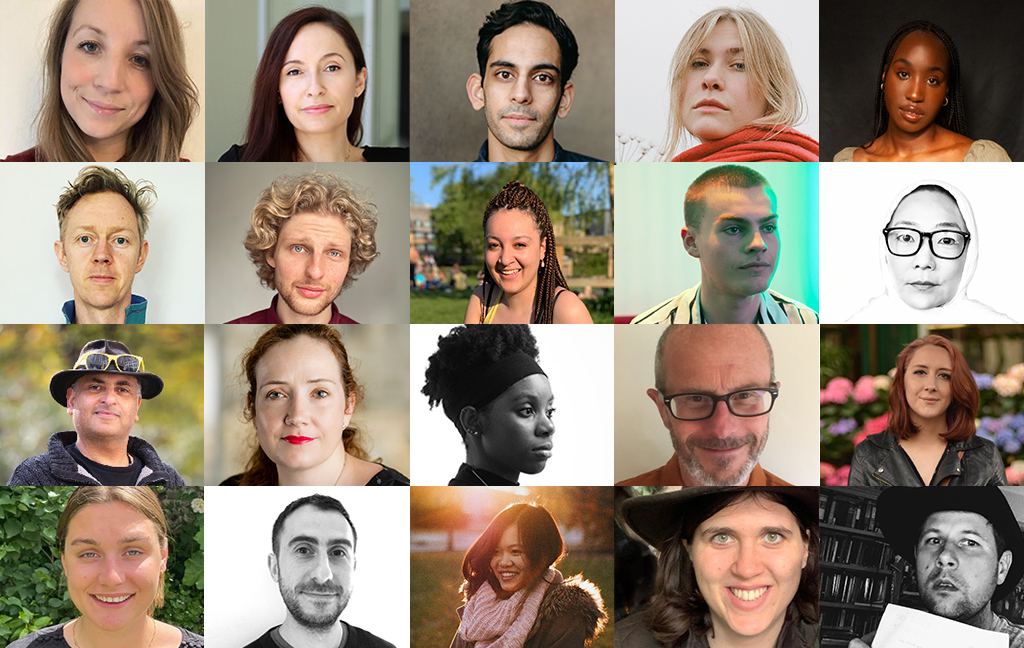
The London Library is delighted to announce the latest 40 participants who have been selected to take part in its flagship Emerging Writers Programme, which supports writers at the very start of their careers.
The 40 writers are working on a broad range of projects predominantly in the following genres: 6 are poets; 4 are playwrights; 4 are screenwriters; 6 are non-fiction writers; 10 are novelists; 4 are writing YA or children’s books; 4 are writing short stories and 2 are graphic novelists. The writers span an age range of early 20s to early 60s.
The candidates were chosen from a field of almost 1000 applicants by a panel of judges comprising travel writer and London Library Trustee Sara Wheeler (Chair); YA and adult fiction writer Sareeta Domingo; screenwriter Karim Flint; poet Will Harris; playwright and screenwriter Alexis Zegerman; novelist, memoirist and writing mentor Tim Lott; the team at Virago; and agents from AM Heath.
The Library’s Emerging Writers Programme is geared towards supporting writers who have not yet published a full-length work of fiction, non-fiction or a collection of poems, or had a full-length work professionally produced for film, TV or the stage.
Participants benefit from one year’s free membership of The London Library alongside a programme of writing development and networking opportunities, peer support and guidance in use of the Library’s resources. This year’s Programme runs from 1 July 2021 to 30 June 2022.
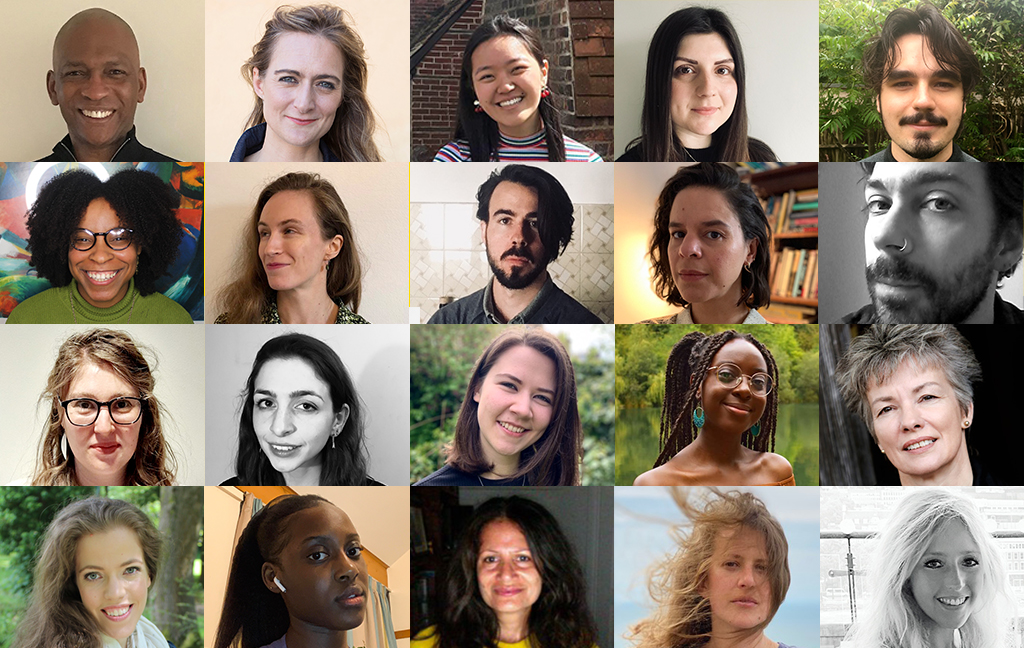
Philip Marshall, Director of The London Library commented: “We’re delighted to be supporting the creativity and inspiration of so many new writers by making the extensive resources of The London Library available through the Emerging Writers Programme. I’m immensely grateful to the judges for the huge amount of work they have put in and to the many donors whose generosity has enabled the Programme to go from strength to strength in supporting those beginning the journey towards a writing career.”
Previous participants on the Emerging Writers Programme, who have had their first book published or have got a publishing deal since taking part, include; Abi Daré (The Girl with the Louding Voice), Lianne Dillsworth (Theatre of Marvels) and Amber Medland (Wild Pets). Earlier this year the Library published an anthology of writing from participants on the 2019-20 programme; From the Silence of the Stacks, New Voices Rise is available to download here.
Read more: The London Library welcomes latest participants onto its Emerging Writers Programme
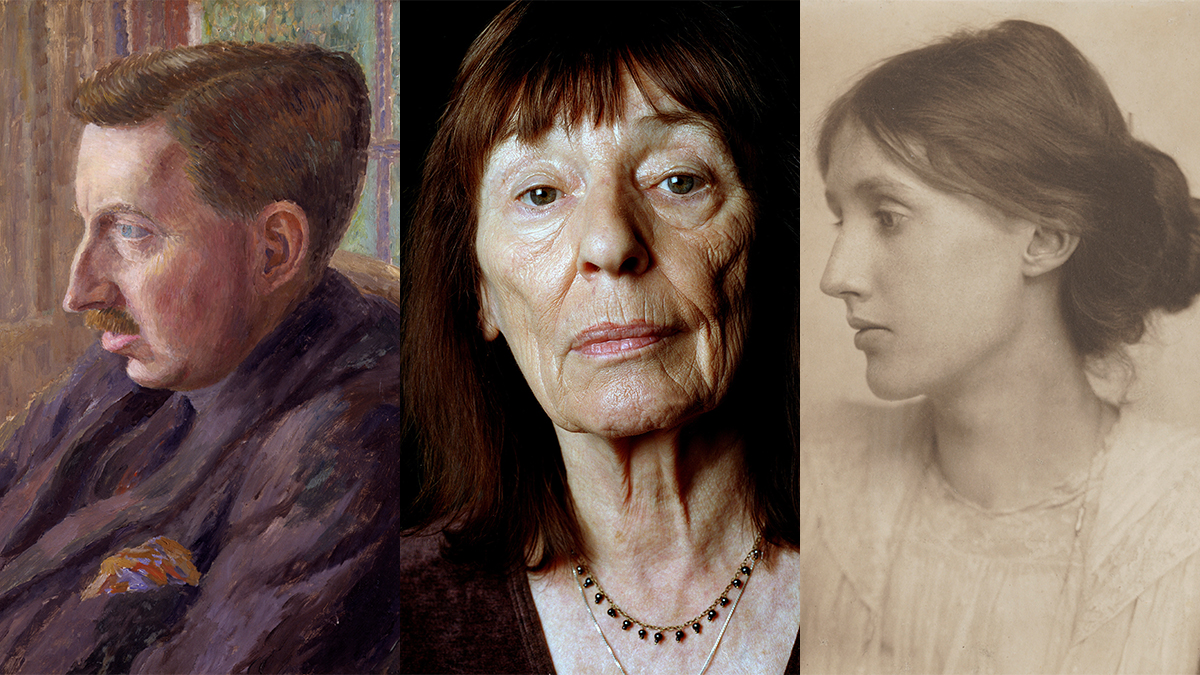
We have recently installed a new display of pictures on the Library’s atmospheric Red Stairs which tells the story of the Library as a unique centre of creativity and inspiration.
Along six flights of stairs - from the Issue Hall up to the entrance of the St James’s Stacks - over 60 framed pictures have been put in place. Included in the display are portraits of over 50 well-known members with interpretation describing their remarkable connections to the Library and the work they produced during their membership.
It is an extraordinary and varied list – from Angela Carter to Charles Dickens, Christabel Pankhurst to Stanley Kubrick, Alec Guinness to Daphne du Maurier.
The exhibition shows how a remarkable number of members joined at an early stage in their careers and the Library provided a thread through much of their writing lives. Virginia Woolf joined 11 years before writing her first novel; Ian Fleming’s entire output on James Bond was written as a Library member; TS Eliot’s early writing career depended on access to the Library’s collection.
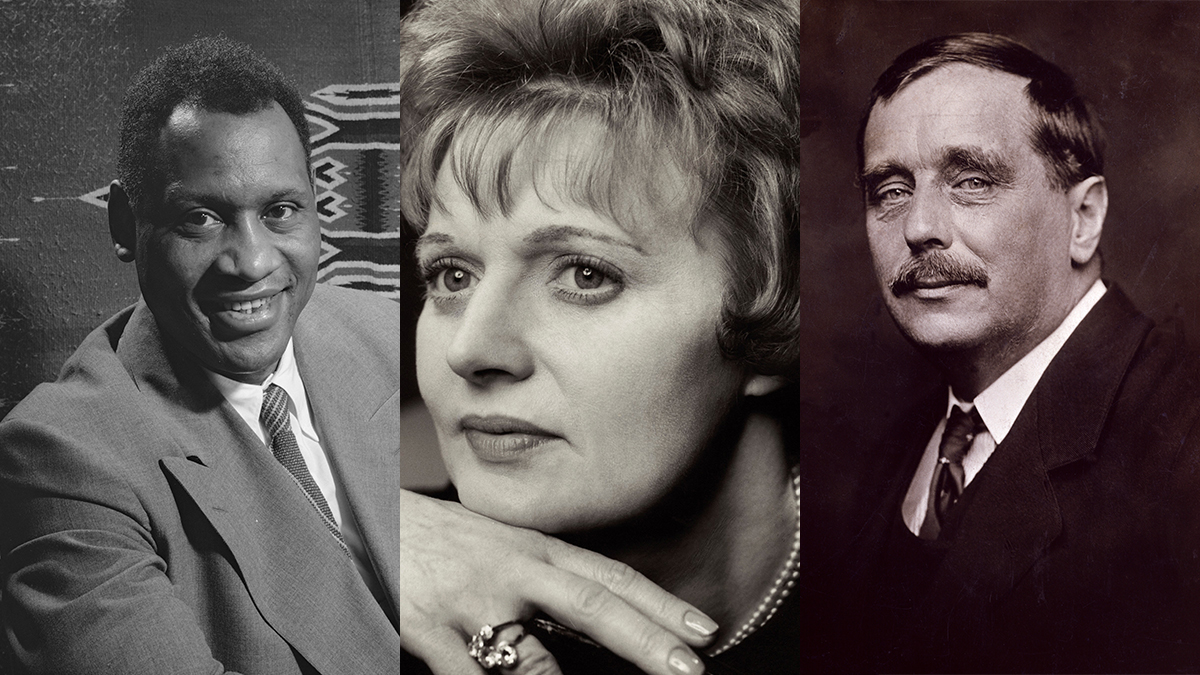
Personal connections are revealed – EM Forster donated the manuscript of The Passage to India to save the Library he loved; George Bernard Shaw applied for life membership only hours after the death of his wife, Charlotte Payne-Townshend (a member for 45 years); sisters Vanessa Bell and Virginia Woolf celebrated their father becoming Library President in their childhood diaries; Diana Rigg joked about her age on her membership form.
Alongside the Library’s connections with well-known members, the exhibition profiles some of the world-famous books – such as Dracula and Possession - that have been inspired by the Library and its collection.
We also take a look at the Library’s vibrant and varied events programme – which is open to anyone; the important work we do to support writers; the personalities featuring in The London Library magazine; and the role the Library plays as a location for filming and media work – from Killing Eve to the Netflix comedy Death to 2020.
We hope that anyone visiting the Library – whether longstanding members or first-time visitors – will enjoy finding out more about the remarkable community that is connected in so many diverse ways to this remarkable place.
--
EM Forster by Dora Carrington ©National Portrait Gallery
Beryl Bainbridge by Eamonn McCabe ©Eamonn McCabe
Virginia Woolf by George Charles Beresford, ©National Portrait Gallery
Paul Robeson, anon c1942
Muriel Spark by Mark Gerson ©Mark Gerson/National Portrait Gallery
HG Wells by George Charles Beresford ©National Portrait Gallery
As The London Library prepares to celebrate its 180th anniversary this weekend, it reveals for the first time the extensive borrowing records of Charles Darwin, who was one of the Library’s earliest members, joining within a few weeks of the Library opening on 3rd May 1841.
In the Library’s archive are a selection of handwritten Issue Books from the 1840s and 1850s, only a few of which have survived to provide a partial record of early members’ borrowing activities. In amongst them are records for Charles Darwin, listing the books he borrowed during various periods between July 1843 and February 1846 and then during a short, undated period in the early 1850s. The Library’s recent research into these ledgers provides a remarkable insight into Charles Darwin’s reading habits during a busy period in his professional life and reveal him to be a voracious leisure reader.
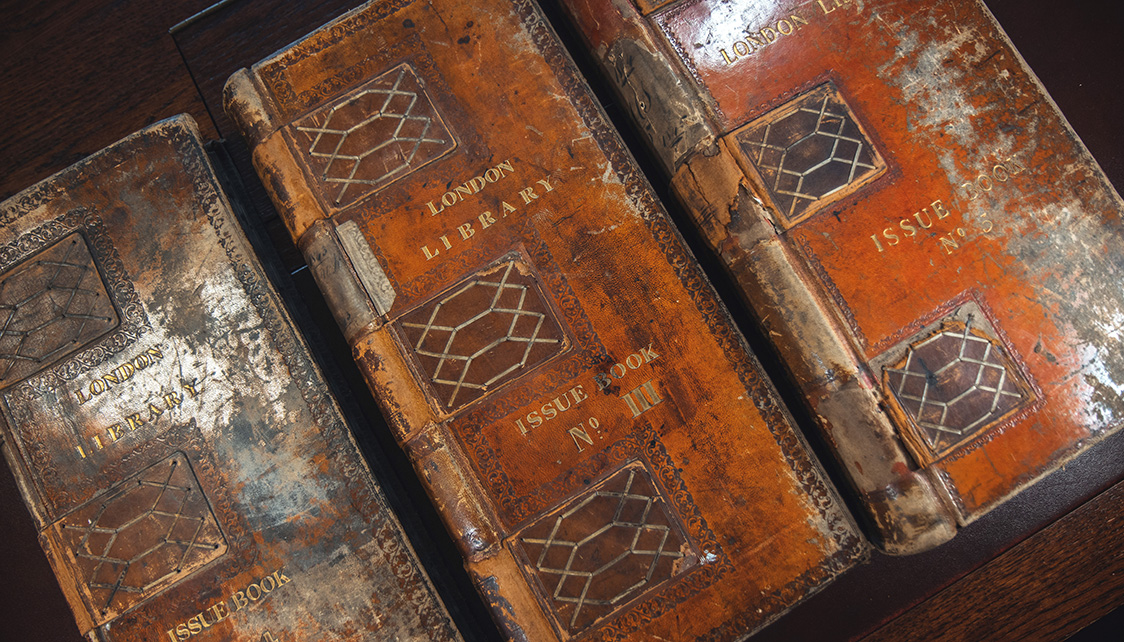
© Cultureshock
In the two year period between July 1843 and July 1845, for example, the Issue Books reveal that Charles Darwin borrowed at least 200 books from The London Library, arranging 36 separate visits to collect them. Of the 119 titles mentioned – many of them multi-volume works - the Library has at least 73 of the relevant editions still in its collection today.
The list is remarkable in its range and extent. Charles Darwin’s reading list includes:
- Lives of the Queens of England, by Agnes Strickland
- Travels in New Zealand by Ernst Dieffenbach
- Works and Essays by Montaigne
- Consuelo, Andre and Valentine by George Sand
- Austria by JB Kohl
- The Journal of a Naturalist by John Knapp
- Correspondence of William Pitt
- The History of Greece by William Mitford
- Sermons on Christian Life by Thomas Arnold
- History of the Conquest of Mexico by William Prescott
- Travels through the Alps by James Forbes
- The Bible in Spain by George Henry Borrow
- The Poetical Works of Robert Southey
- The Art of Deer Stalking by William Scrope
The period covered by the Issue Books were a hectic time for the family. Five children were born and during the 1840s Charles Darwin, often ill, produced scientific works on coral reefs and volcanic islands and a revised edition of his bestselling Voyage of the Beagle. Out of the public eye, he was also working on his ‘species theory’, outlining the main ideas in his notebooks by 1842 and writing them up as a fully researched paper which he began sharing with his closest friends in 1844, 15 years before they were eventually published as The Origin of the Species. Exhaustive research into barnacles dominated his time in the late 1840s.
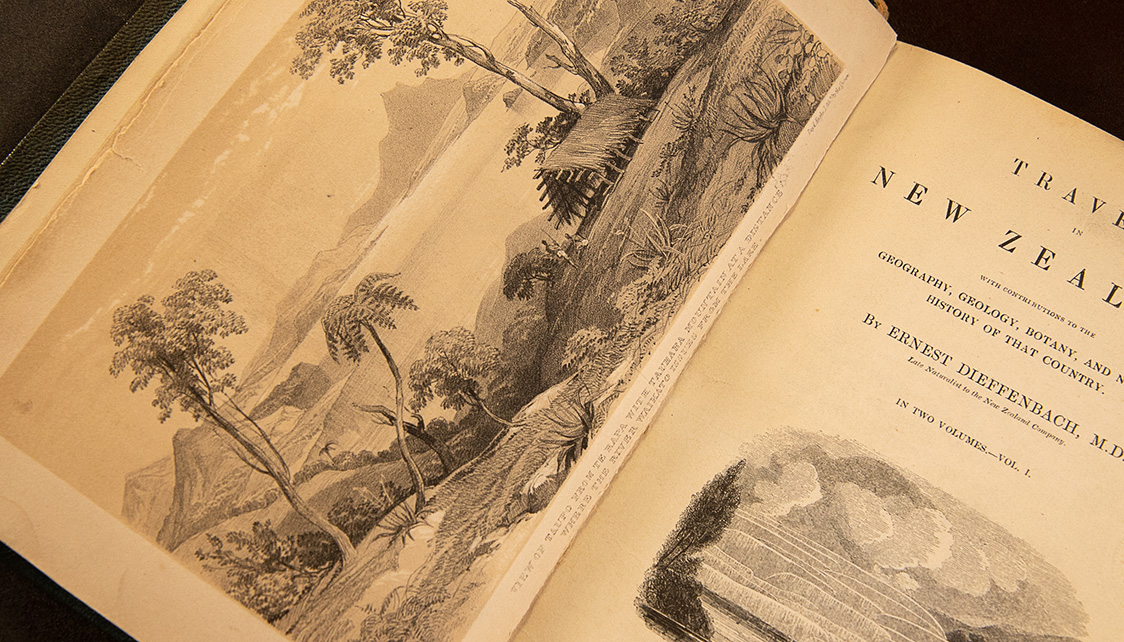
© Cultureshock
In spite of the workload, Charles Darwin and his wife Emma would often spend evenings reading together. It is highly likely that London Library books formed part of this routine, with Charles often borrowing books two or three times a month, taking out several volumes at a time.
Philip Marshall, Director of The London Library commented: “The Issue Books are a remarkable survival, and reveal a fascinating portrait of Charles Darwin as a voracious general reader fuelled by intellectual curiosity and drawing heavily on The London Library for reading material. As the Library approaches its 180th anniversary it has been very special to explore the way in which the Library’s collection informed the thinking of one of its earliest members just as it drives the ideas of our members today.”
The Library’s connection with the Darwin family is a strong one. Charles Darwin’s brother Erasmus was a founder member and introduced Charles to the Library in 1841. Five of Charles’ children joined between 1862 and 1890. Writer, Emma Darwin – Charles’s great-great granddaughter – has been a member here for several years.
The research into Charles Darwin’s reading list demonstrates the place The London Library has as one of the country’s greatest literary institutions, providing a centre of creativity, inspiration and ideas for 180 years. It has had a unique impact on the country’s literary and artistic output and continues to do so today. Thousands of the world’s greatest writers and thinkers have been associated with it, passionately supporting it and drawing heavily on its collection to produce their work. The London Library is the world’s largest independent lending library and anyone can become a member.
Read more: Charles Darwin’s reading list revealed at The London Library

